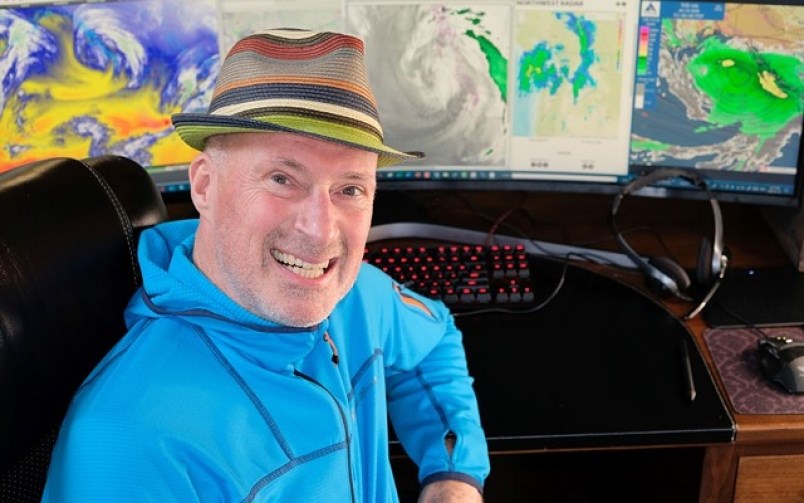By Joel Barde
Skiers and boarders know the drill: When you're not riding, you're checking conditions and forecasts, trying to figure out when the next epic day is going to be.
Yet most of the go-to forecasting resources are pretty basic, providing a broad overview of what to expect, without in-depth analysis of how specific weather patterns will impact Whistler Blackcomb (WB).
That's where David Jones steps in. A professional meteorologist who retired from Environment Canada in 2017, Jones is producing a daily weather story that's tailor-made for the Whistler crowd.
His goal, he explained, is to fight through the "reams and reams" of weather information available online and appeal directly to the "narrow interests" of riders and skiers.
"Unless you want to do some work yourself, not much of [the weather forecasting available] is directed at the small group of skiers known as powder hounds," said Jones.
Delivered every day at 10 a.m., the Whistler Weather Story is a two-minute weather-news story that can be seen on Twitter (@djones_weather).
The Whistler Weather Story Monday Feb 3
— David Jones Weather: Speaking Truth to Powder (@djones_weather)
MT David Jones M-F 10am
Follow the WWS on Instagram:
He's on Instagram (@meteorologistdavidjones), Facebook ( David Jones), and .
Jones was a staple on Â鶹´«Ã½Ó³»television and radio broadcasts for years discussing the environment, and his current rapid-fire stories leverage decades of experience.
His goal, he said, is to provide some guidance to the general public, allowing them to plan their days like a meteorologist does.
"This year, I'm not skiing because I had a hip replaced," said Jones. "But last year and years prior, I kind of used my insider knowledge to plan my days and really anticipate what's going to happen with respect to ski conditions up the mountain."
Though uncertain if he will keep the forecasts up next season, Jones said he's received a positive response so far. "I've had a pretty amazing response from lots of people who seem to really appreciate what I'm doing and their comments back to me," he said.
To shore up his forecast, Jones provides confidence statements for his predictions.
In his view, a forecast without a confidence statement cannot be interpreted properly, he said.
When it comes to big weather stories this winter, Jones said that the dominant one has to be the slow start to the winter.
Drawing from Environment Canada data, Jones said he determined it was "the slowest start on record at Whistler since records began."
But in recent weeks, things have really picked up, he noted. "The atmosphere is so energized," said Jones.
Newly retired, Jones, in a sense, is going back to his roots.
He grew up in North Vancouver, at the foot of Grouse Mountain, and said he recalls "constantly" calling up the mountain's snow phone, looking for updates.
"That's what got me interested in the weather," said Jones. "So, I am basically doing what I started out as a kid doing, except that now I've acquired some real weather knowledge background."
Read more from



